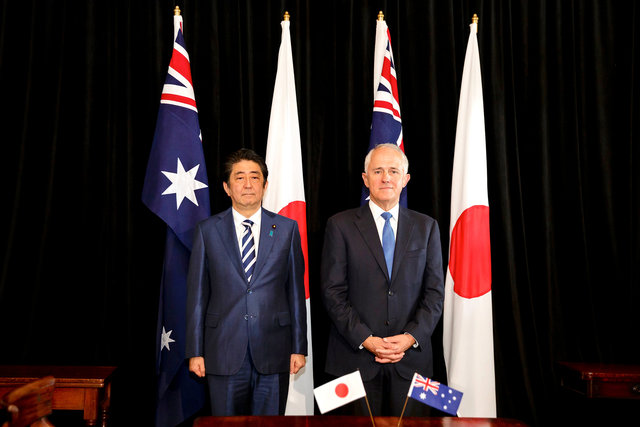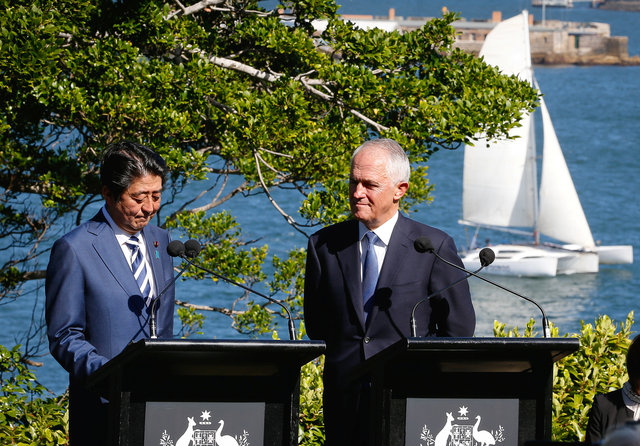Japan and Australia agree to strengthen defence ties
 Japanese Prime Minister Shinzo Abe and Australian Prime Minister Malcolm Turnbull stand together before a signing ceremony at the end of their bilateral meeting at Kirribilli House in Sydney, Australia, January 14, 2017. (Photo: Reuters)
Japanese Prime Minister Shinzo Abe and Australian Prime Minister Malcolm Turnbull stand together before a signing ceremony at the end of their bilateral meeting at Kirribilli House in Sydney, Australia, January 14, 2017. (Photo: Reuters) SYDNEY – Japanese Prime Minister Shinzo Abe has met his Australian counterpart Malcolm Turnbull in Sydney where the pair agreed to deepen defence ties through joint military training and exercises.
Abe’s visit to Australia is the first since Turnbull became prime minister in late 2015, and comes amid heightened regional tension as China asserts its claims over disputed territory in the South China Sea.
“We have confirmed our commitment to the rule of law, free trade and open markets in our region,” Turnbull told reporters at a joint press conference on Saturday.
Abe said the increasingly uncertain geopolitical landscape made the relationship between Japan and Australia more important than ever.
“It is important to guard and increase the robustness of the free, open and rules-based international order,” Abe said.

Japanese Prime Minister Shinzo Abe talks as Australian Prime Minister Malcolm Turnbull listens during a media conference after their bilateral meeting at Kirribilli House in Sydney, Australia, January 14, 2017. (Photo: Reuters)
The two leaders announced the signing of an Acquisition and Cross-Servicing Agreement (ACSA), which will increase cooperation in combined exercises, training and peace-keeping operations. The agreement is expected to be finalised by the end of 2017.
The announcement comes nearly nine months after Australia chose a French bid over a Japanese design for a new fleet of submarines.
The loss of the $50 billion contract was a major blow for Abe’s ambitions to develop Japan’s defence export capabilities as part of a more muscular security agenda.
Japan, as well as Australia, is looking to protect its strategic and trade interests in Asia-Pacific, especially as China becomes increasingly assertive in the South China Sea.
– Reuters

